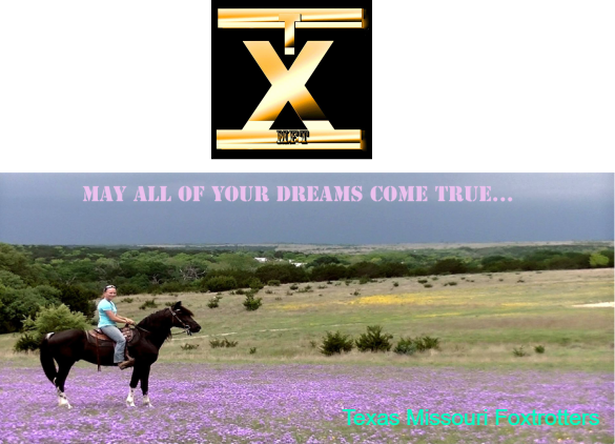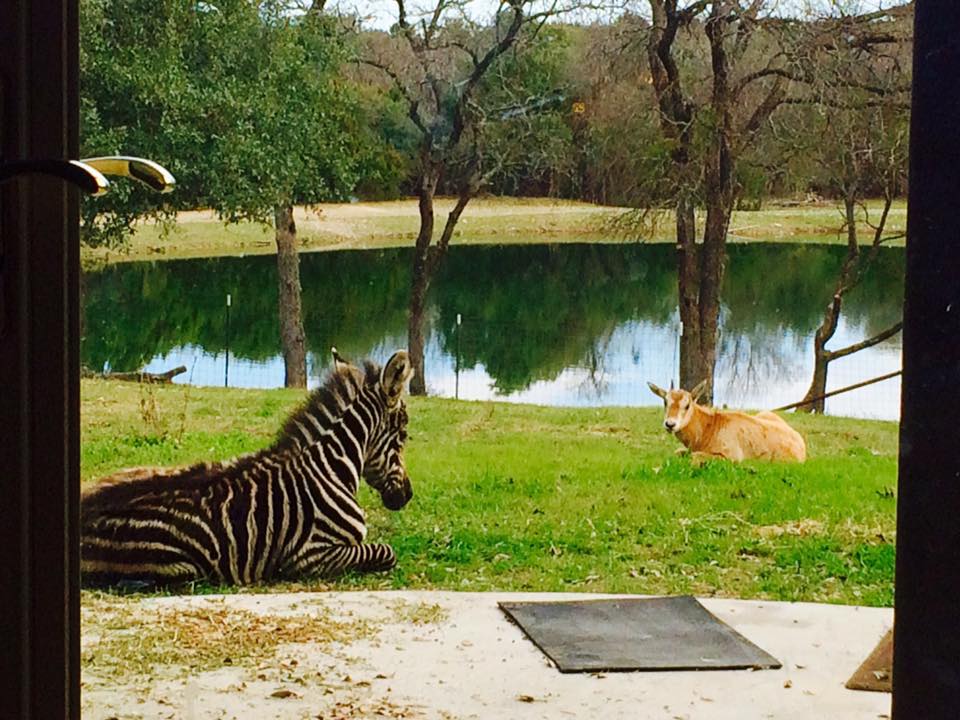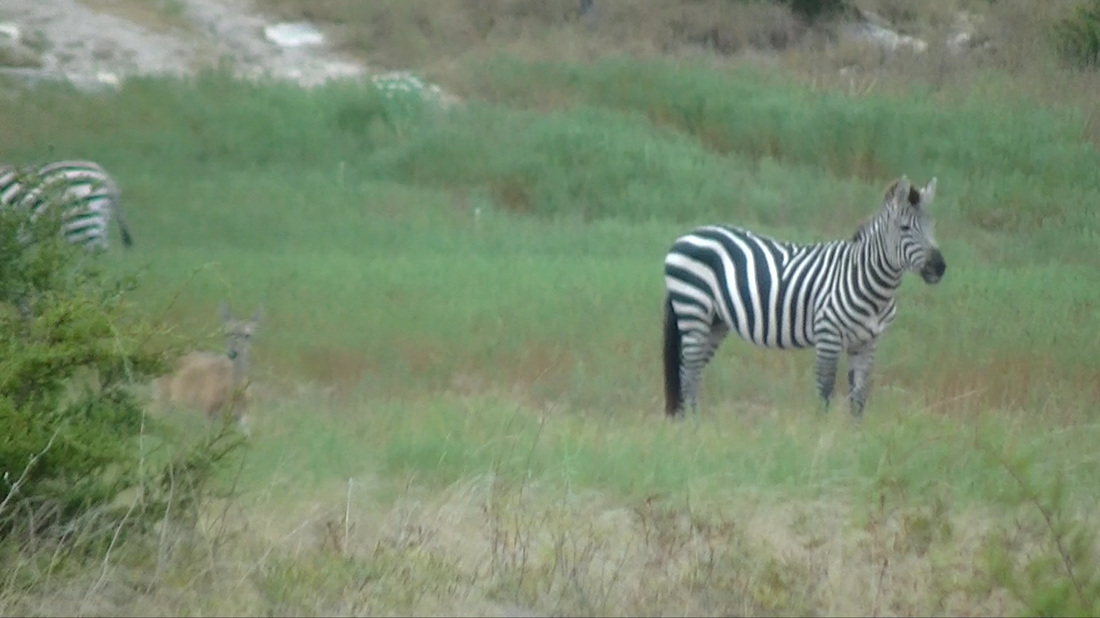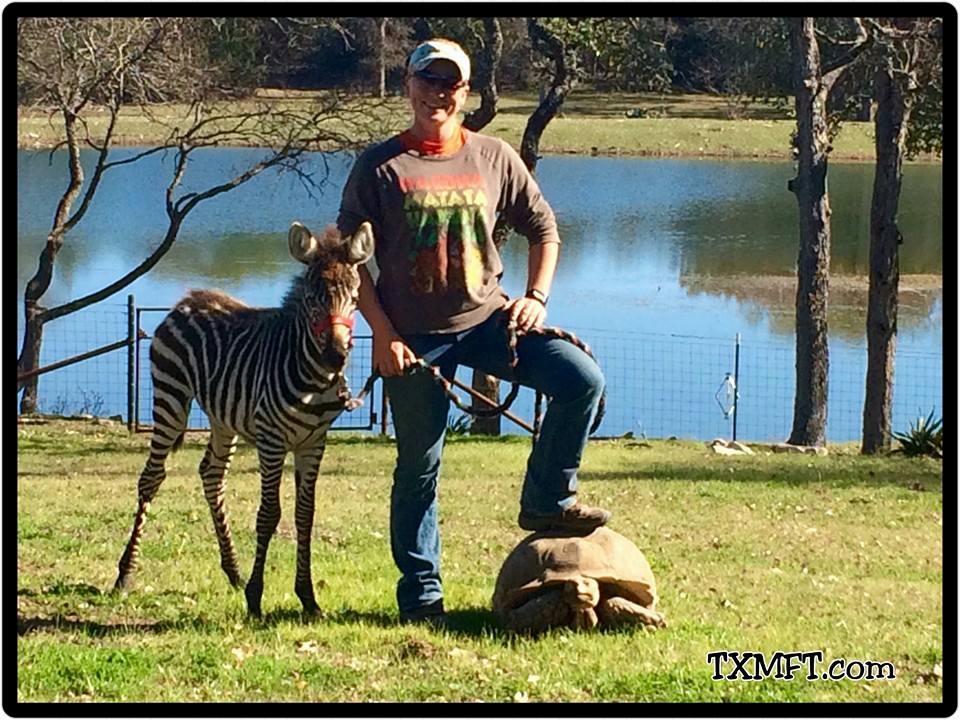*We are currently sold out of zebras until 2022.*
Zebra facts and information -
Here are a few things we have picked up along the way. Our Facebook zebra group has gotten fairly large and has become an interesting forum for questions and discussion about zebra breeding behavior, zonkeys, zorses and many other topics. In our zebra group - one of the most frequently asked questions is about state laws regarding exotic animals. It is still a good idea to check with your local county or state offices before purchasing any exotic animal.
I found this link that should help answer some of those questions.
http://www.bornfreeusa.org/b4a2_exotic_animals_summary.php
I found this link that should help answer some of those questions.
http://www.bornfreeusa.org/b4a2_exotic_animals_summary.php
|
|
If you are looking to purchase a zebra in the US, it is a good idea to check with your local animal shelter to see what your county allows. Generally non-endangered Grants zebras are ok - Grevy's require a permit I believe. As far as other countries go, we are learning that Australia is very difficult to get them into and the UK requires permits and property checks.
Zebra owning Information - from Rarity Acres website. I thought this was excellent information - Thinking of owning a zebra or zebra cross? Take the time to do your research and make sure they are the right animal for you! They are not something you will want to jump into, you will need time to prepare and make sure you're ready. Zebras are a wild animal and not domesticated like a horse. Since they are a wild animal and can be unpredictable they are not a child’s pet! Best handler for a zebra would be a experienced horse owner, best to have mule training experience. Sadly a lot of zebras are passed around due to people jumping into a purchasing and not be able to handle them. Zebras are not like owning a horse, and a lot of people are shocked when they hear me say that! Like I said above keep in mind zebras are still a wild animal, their wild instincts are high. They are less trusting then a horse and flight instincts are high. Training a zebra takes a lot of patience and handling. Simple task like haltering and leading can take a lot of time to prefect. They need consistent handling, a zebra that is just turned out to pasture and not handled will go back to its wild side. Zebras need all the proper training to help them be easier to work with. Research should be done about the breeder before purchasing from them. When it comes to exotics many breeders just breed for the money and don’t put any effort into what they are breeding for. If your looking for a zebra to do a lot of handling this is important to ensure your zebra will have the right temperament to allow handling. The best zebra foal to purchase would be one that is mother raised!! And the mother is able to be handled so the foal can also be at birth! Unfortunately this is hard to find as most of the big zebra breeders are not able to handle their stock. As adult breeding stock can be hard to handle and Zebra stallions once they start breeding can also get really aggressive to both humans and other animals. Bottle raising can work for some foals, but most of the time it creates a monster. Most breeders choice to bottle raise since they can’t handle their stock. They will pull their foals at 2 weeks old while they are easy to handle, and put them on the bottle. This is a lot of stress on such a young foal. Most breeders will ship them off to auctions right away as nothing sells better then a cute fuzzy foal on a bottle. This can be super risky for the foal being pulled away from its mother so young and then shipped around. The risk of them getting sick is pretty high, which can result in death of the foal. Bottle babies are more prone to have attitude and temperament issues due to not having that motherly figure. They tend be real sweet and bound to you strongly as you’re now their mother, and have the milk they want. People can’t help but spoil them! But since they never had that discipline once older they can become real disrespectful. In most cases this makes them a lot harder to train as they don’t like being told what to do. This is the same with other equines too. Teaching them to be respectful once older is a huge challenge once they already picked up bad habits. In my opinion if a foal needs to be pulled away from its mother due to her being wild, I always suggest the baby being bucket raised not bottle. The bucket should not be held while the foal eats. But placed in front of the foal and then walk away. You are now just the cow producing the milk and not the mother figure. To help teach this foal manner and respect add in a adult mini horse or donkey to help teach the foal manners. Training Zebras are extremely strong, smart and sensitive which this combination has give them that un-trainable name. Zebras are trainable but not many people understand them and try to use harsh training techniques on them in which doesn’t work. Zebras need to be trained with gentle training techniques, they can’t be forced to do anything they don’t want to do. Zebras tend to panic under stress and can seriously hurt themselves or their handler. They will shut down much like a donkey will, which gives them that “stubborn” name. Also, can also turn aggression to protect themselves against force. In order to train a zebra you MUST earn their trust first!! This can take a lot of time, zebra training can not be rushed to get results. Therefore you must be patient! If a good bound is created a zebra can be trained to do a lot of things a horse can. Although not all zebra will ever get to the point of being ridden. It really takes a zebra will a exceptional temperament and the right training to get to that point. Like I tell everyone if it was easy you would see people in Africa riding them around instead of walking! You would also see more of them being ridden here in the US. Even a zebra who rides will not ride like a horse, they generally only allow short riding periods. Most zebras owners like to describe their zebras as sassy. They will for sure let you know what they like and don’t. When handling a zebra caution should always be made as they are not afraid to bite or kick to let you know if they don’t like something. Most people can not handle the challenge that zebras are and end up letting them go wild, that is why you see a lot of un-handle able adult zebras out there. There are also some zebras who just don’t have the right temperament to be handled and its safer that they are not. But a zebra with a good temperament can be a joy for the right handler to work with. A zebra who trust its owner will have a extremely strong bound! Its not uncommon for a zebra to bound so strong that they allow its owner to handle them but not let anyone else touch them. They tend to be untrusting of outsiders and keep them at a distance. Zebra Care and Feed- Zebras are similar to donkeys when it comes to feeding. A healthy zebra will generally be a easy keeper. They don’t need a real rich diet. They do best on a good quality grass hay with little alfalfa. Pure alfalfa should not be fed to them. We will feed them extra hay to help keep warm during the winter. When it comes to grain they don’t need a lot. Our zebra get a special grain designed for them called Mazauri Zebra pellets. And our pregnant mares also get a small amount of Tribute essential K to ensure they get all the vitamins and minerals they need. We also make sure we always keep a few different kinds of mineral blocks out for them. Selenium blocks are super important for zebras especially to pregnant mares to ensure the foals don’t end up with heart disease. If your located in a colder state its best to also purchase from a breeder in a colder state. This will ensure the zebra will handle the winter ok. Herds of zebras that have been bred in colder states for years have adjusted well to the climate and the foals grow good winter coats. Bringing in a zebra from a warmer state can be super hard on them during the winter months, it might take a while for them to grow a good coat. They will also need heated water and a good shelter to get out of the weather. Most zebras do not do well with being confined in a stall. They can start to get stressed and start anxious behaviors like stall weaving or walking. They do best being able to come and go out of their shelter as they prefer. Some zebras might still need to be blanketed during the winter months depending on how they handle the weather. Which can be a challenge getting a blanket on some zebras. Our stallion even though was born in a colder state and has been here in MI for many years he still doesn’t grow much of a winter coat. We blanket him as he gets miserable in the cold without it. Once on he does just fine in the cold and will spend most of his time outside. Pasturing and Fencing Zebras need a good amount of room to move around, and should not be confined to a small space. They also do best with a pasture companion, they are a herd animal. As far as fencing, I always suggest at least 6 ft tall fencing for zebras and something solid like woven no climb horse fencing. Also field fence or chain link works well too. Most breeders go with 8 ft fencing to ensure safety. Zebras can hop over a short fence with ease. And since their flight instincts are high they tend to react without thinking or if pushed they will run right through wire fencing or anything with spacing. Wood boards they can push right through also. Zebras are well known for escaping and will test the fencing if its not solid. |
|
|
|



